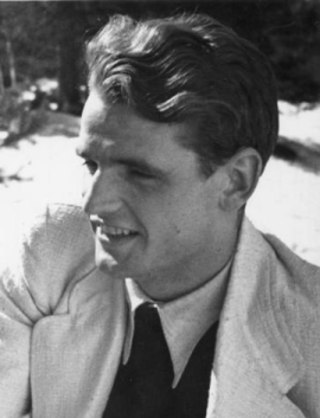
Hans Fritz Scholl was, along with Alexander Schmorell, one of the two founding members of the White Rose resistance movement in Nazi Germany. The principal author of the resistance movement's literature, he was found guilty of high treason for distributing anti-Nazi material and was executed by the Nazi regime in 1943 during World War II.

Mogilno is a town in central Poland, seat of the Mogilno County in the Kuyavian-Pomeranian Voivodeship.

The AB-Aktion, was a second stage of the Nazi German campaign of violence during World War II aimed to eliminate the intellectuals and the upper classes of the Second Polish Republic across the territories slated for eventual annexation. Most of the killings were arranged in a form of forced disappearances from multiple cities and towns upon the German arrival. In the spring and summer of 1940, more than 30,000 Polish citizens were arrested by the Nazi authorities in German-occupied central Poland, the so-called General Government. About 7,000 of them including community leaders, professors, teachers and priests were subsequently massacred secretly at various locations including at the Palmiry forest complex near Palmiry. The others were sent to Nazi concentration camps.
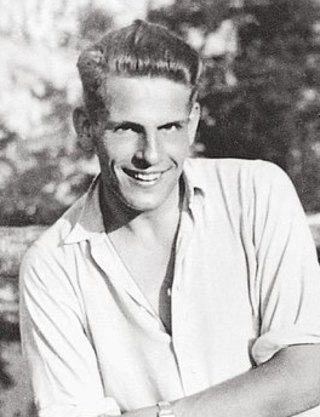
Christoph Ananda Probst was a German student of medicine and member of the White Rose resistance group.

Alexander Schmorell was a Russian-German student at Munich University who, with five others, formed a resistance group known as White Rose which was active against the Nazi German regime from June 1942 to February 1943. In 2012, he was glorified as a saint and passion bearer by the Russian Orthodox Church Outside Russia, and is venerated by Orthodox Christians throughout the world.

Marceli Nowotko was a Polish communist activist and first secretary of the Polish Workers Party (PPR).
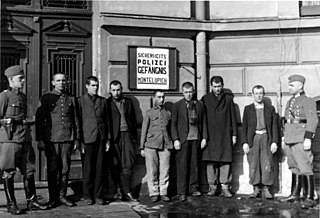
The Montelupich Prison, so called from the street in which it is located, the ulica Montelupich, is a historic prison in Kraków from early 20th century, which was used by the Gestapo in World War II. It is universally recognized as "one of the most terrible Nazi prisons in [occupied] Poland". The Gestapo took over the facility from the German Sicherheitspolizei at the end of March 1941. One of the Nazi officials responsible for overseeing the Montelupich Prison was Ludwig Hahn.

The 108 Martyrs of World War II, known also as the 108 Blessed Polish Martyrs, were Roman Catholics from Poland killed during World War II by Nazi Germany.
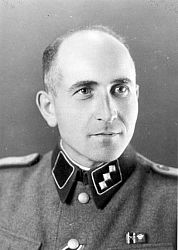
Maximilian Grabner was an Austrian Gestapo chief in Auschwitz. At Auschwitz he was in command of the torture chamber Block 11, where he gained a reputation of brutality. He was executed for crimes against humanity in 1948.

Joseph Müller was a German Catholic priest and critic of the Nazi regime. He was tried by the People's Court and executed at Brandenburg-Görden Prison.

Franciszek Gajowniczek was a Polish army sergeant whose life was saved at the Auschwitz concentration camp by Catholic priest Maximilian Kolbe, who volunteered to die in his place.

Łukasz Ciepliński [Polish pronunciation:[ˈwukaʂt͡ɕɛˈpliɲskʲi]] was a Polish soldier who fought in the Polish anti-Nazi and anti-communist resistance movements. He used various aliases: Pług, Ostrowski, Ludwik, Grzmot, and Bogdan. Ciepliński was executed at Mokotów Prison in Warsaw, with a shot to the back of the head by the Polish secret police, Urząd Bezpieczeństwa.
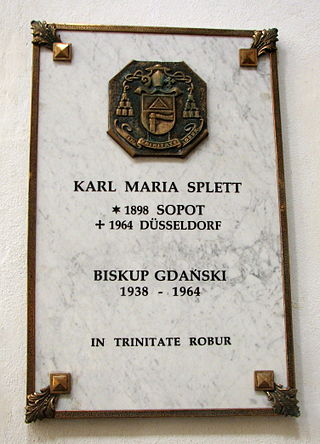
Carl Maria Splett was a German Roman Catholic priest and Bishop of Danzig (Gdańsk); his role during World War II, especially as apostolic administrator of the Diocese of Culm, is controversial. After World War II he was put on trial and imprisoned in Poland for his alleged collaboration with the Nazi regime, and later deported to West Germany.

Franciszek Blachnicki was a Polish Roman Catholic priest and the founder of the Light-Life movement – also known as the Oasis Movement – and the Secular Institute of the Immaculate Mother of the Church. He founded several other movements and religious congregations that would address a range of social and ethical issues. These issues included anti-alcoholism and human rights. His movements first came about after starting out as simple retreats designed for both altar servers and families that later began to address a series of issues in Poland at the time. His concern for human rights came during the communist era in Poland as well as his experiences as a prisoner of war during World War II in which he was incarcerated in Auschwitz and other concentration camps under the German Nazi regime.
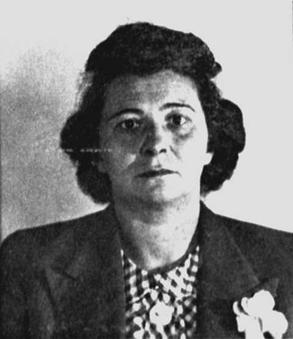
Elli Hatschek was a member of the German Resistance against Nazism. She was married to Paul Hatschek, a leading member of the resistance group, the European Union and who was arrested by the Gestapo in 1943. Under heavy interrogation, he gave up the names of others in his group, who were then arrested. His wife was also arrested. Though she was not heavily involved, she was charged with "undermining the morale of the military" and was sentenced to death. She was executed by the Nazis at Plötzensee Prison.
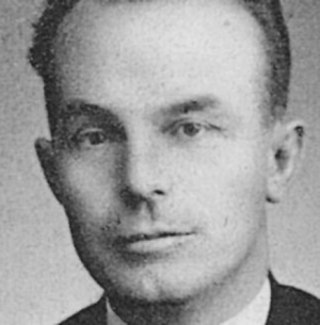
Jakob Gapp was an Austrian Roman Catholic priest and a professed member from the Marianists. Gapp first served as a soldier on the Italian front during World War I at a point in his life where his religious convictions were not of high importance, though his return home from a prisoner of war camp saw him develop socialist views that soon bought him into contact with the Marianists whom he later joined. After studies and ordination he was assigned in Austria as a teacher, where he became noted for his vehement opposition to the Nazi regime; he deemed Nazism as being some warped political tool to create division which was also incompatible with the faith.

Michał Kozal was a Polish Roman Catholic bishop. Kozal was noted for his intelligence and dedication to studies and studied to become a priest during World War I, which disrupted his studies but did not prevent his ordination in 1918; he gained fame for his abilities and rose to several positions that superiors endowed upon him all culminating in being named a Monsignor in 1932 and then appointed to the episcopate in 1939 just before World War II started. But his pastoral mission as a bishop did not last long since the Nazi forces arrested and tortured him and sent him to Dachau where he died after being injected with a lethal substance.
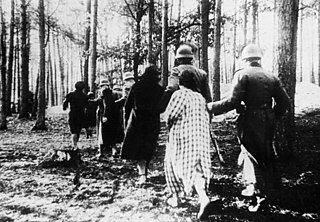
The Palmiry massacre was a series of mass executions carried out by Nazi German forces, during World War II, near the village of Palmiry in the Kampinos Forest northwest of Warsaw.

Jan Pietraszko was a Polish Roman Catholic bishop who served as one of the auxiliaries for the Kraków archdiocese and Titular Bishop of Turrisblanda from 1962 until his death. Pietraszko was a noted spiritual director and chaplain as well as a popular confessor but was best known for his sermons and for his homiletic writings. He did his ecclesial studies just before World War II broke out and was a brief hostage of the Gestapo after the Nazi forces invaded Poland in 1939. He later came under the watch of the communist secret service following the conflict for his attempt to see new churches constructed and church art and architecture preserved.



















